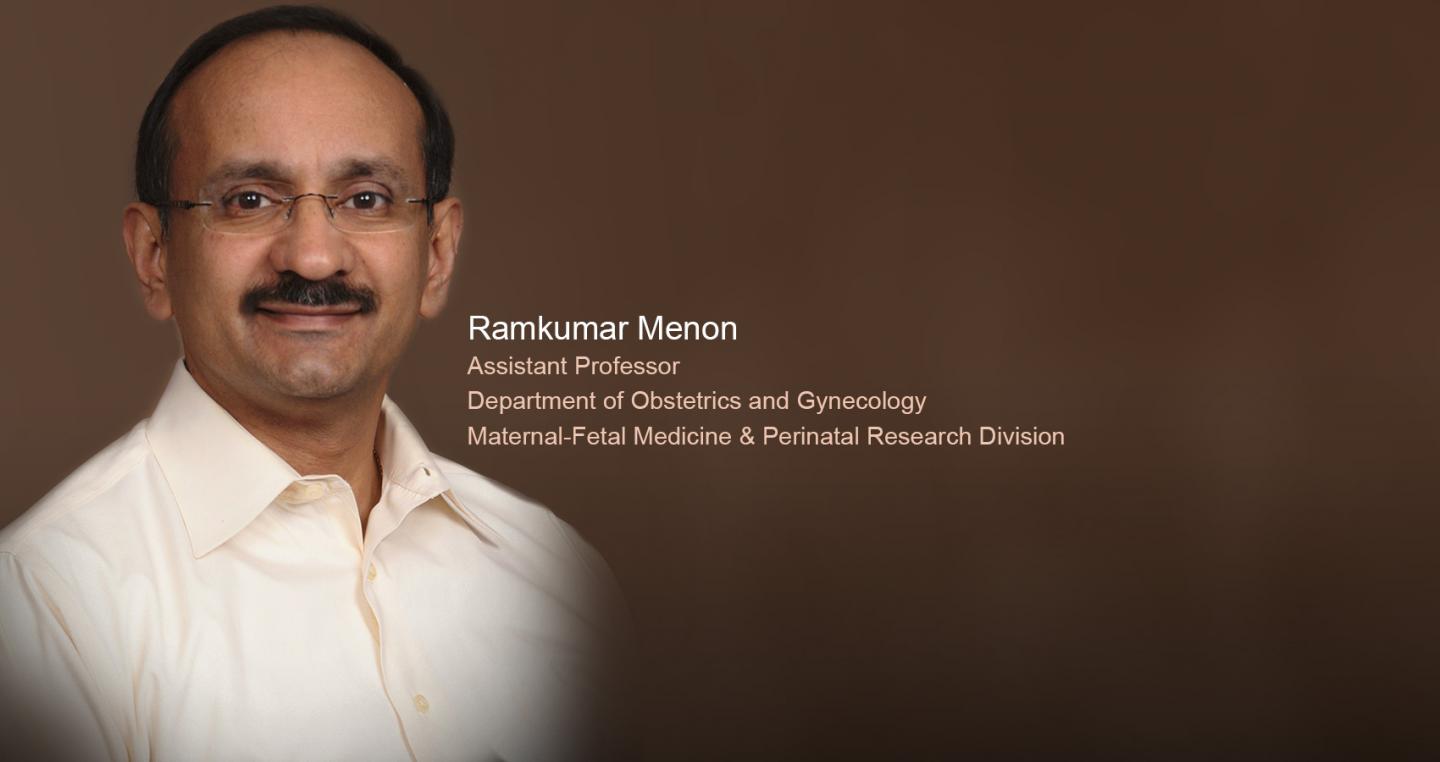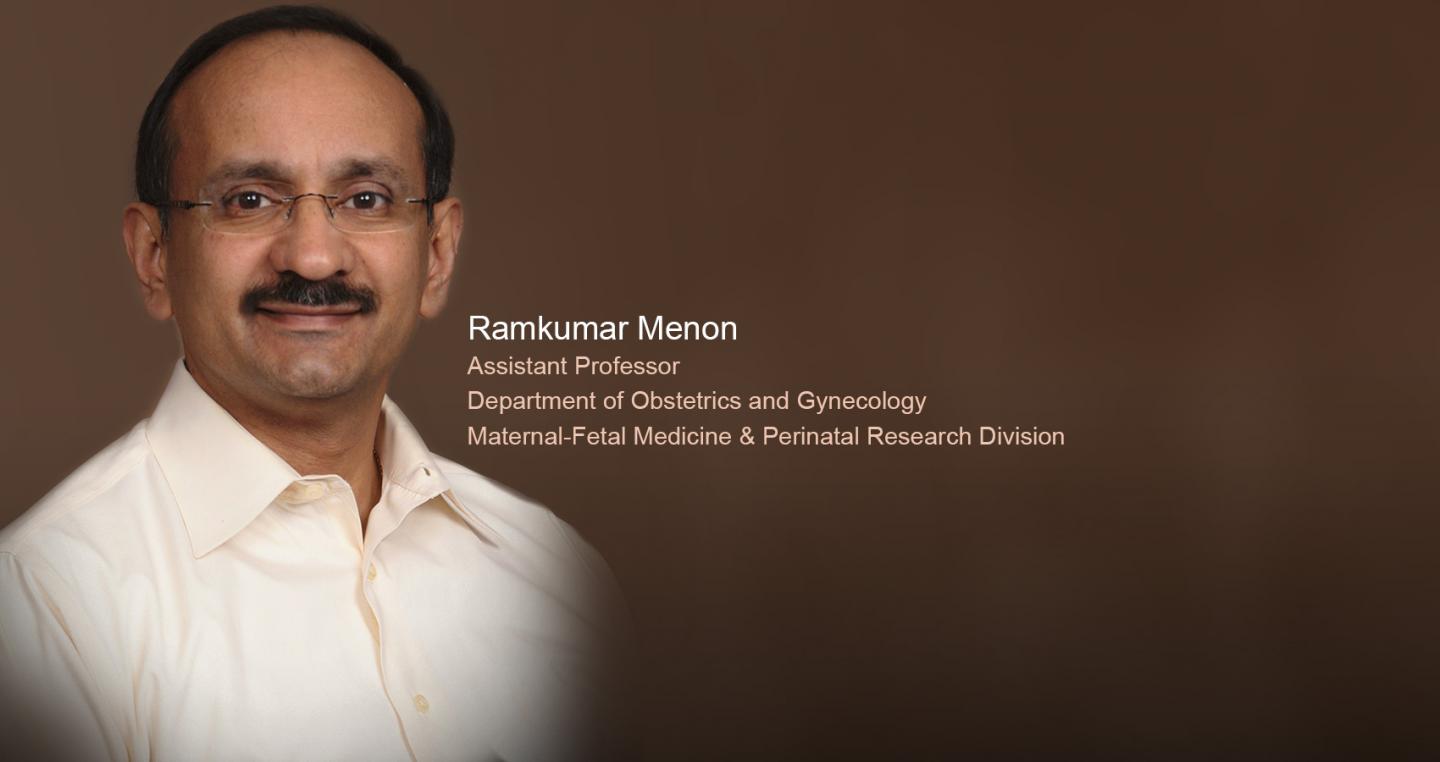
Credit: The University of Texas Medical Branch at Galveston
GALVESTON, Texas – A group of scientists led by Ramkumar Menon at The University of Texas Medical Branch at Galveston has gained new insights into what factors lead to preterm birth. This study is currently available in The American Journal of Pathology.
When a woman is pregnant, the amniotic membranes serve important developmental and protective functions for the growing fetus. As a woman nears the end of her pregnancy, the amniotic sac develops fractures and eventually ruptures, causing her water to break."
"Small fractures in the amniotic membranes called microfractures build up as pregnancy progresses, producing an inflammatory response that is tied to labor and delivery," said lead author Gracie Vargas, a UTMB professor in the department of neuroscience and cell biology. "When microfractures accumulate earlier in the pregnancy than expected, the woman's water can break early, increasing the risk of infection and preterm birth".
The researchers sought to understand what leads to early microfractures and focused on oxidative stress. In the process of breathing in oxygen, our bodies produce byproducts such as reactive oxygen, also called free radicals. Oxidative stress happens when a body's system is unable to remove the sometimes toxic byproducts in reactive oxygen that often results in an imbalance in the system.
"Oxidative stress is a source of damage that is the total stress placed on bodily tissues by normal functioning combined with outside stressors such as infection, poor nutrition, being overweight, smoking and taking illicit drugs," said lead author Lauren Richardson, a UTMB graduate student in the departments of neuroscience and cell biology as well as obstetrics and gynecology. "An effort to decrease oxidative stressors is one of the reasons for the popularity of antioxidant-containing foods, beverages, skin care products and vitamins."
"Oxidative stress induced more microfractures in the amniotic membranes of women whose water broke before the end of her pregnancy had more microfractures than women who gave birth at the end of her term," said senior author and principal investigator, Ramkumar Menon, UTMB assistant professor in the department of obstetrics and gynecology. "We are seeing this for the first time because earlier microscopic methods were not sensitive enough to detect these fractures."
The researchers acquired amniotic membranes donated by women about to give birth and exposed the tissues to cigarette smoke extract in the laboratory. Using a combination of specialized microscopic techniques, they studied the impact of the smoke extract on microfractures. They compared normal, full-term amniotic membranes donated by women in labor at the end of their term and from women not in labor but preparing for a cesarean section with the donated membranes of women who delivered prematurely and women whose water broke early.
###
Other study authors include UTMB's Tyra Brown, Lorenzo Ochoa, Samantha Sheller-Miller and George Saade, as well as Robert Taylor from Wake Forest School of Medicine.
Media Contact
Donna Ramirez
[email protected]
409-772-8791
@utmb_news
http://www.utmb.edu
Original Source
http://www.utmb.edu/newsroom/article11669.aspx





